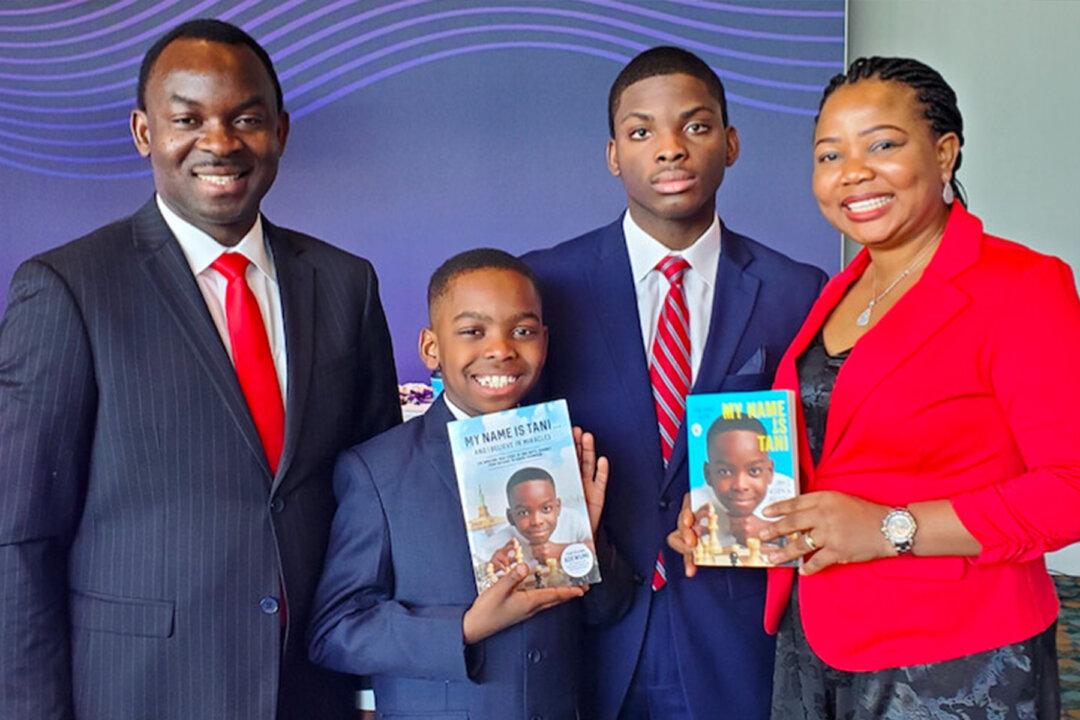Tani Adewumi was just in first grade when Boko Haram knocked on his father’s door and turned their lives upside down. A couple years later, the story of this son of a Nigerian prince turned homeless refugee turned prodigy chess champion warmed hearts the world over, and since then, the miracles have only continued.
The family tells their story in detail in the book “My Name Is Tani ... and I Believe in Miracles” written with author Craig Borlase, which hits shelves April 14, along with a young reader’s version. A movie adaptation of Tani’s life is in the works at Paramount.






